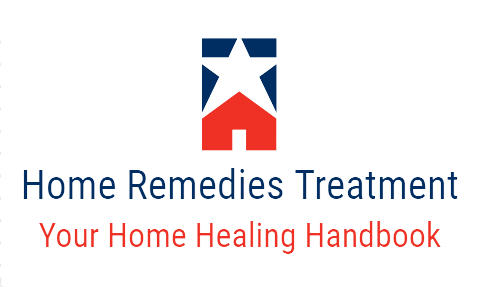
Get rid of cataracts naturally

What is a cataract?
All of our eyes have lenses that are important for vision. They are like the glasses you wear or the camera lens you use. The clarity of what we see depends on the clarity of the lens in our eyes.
Cataracts are a problem in which the lens becomes cloudy and prevents clear vision. It is more commonly seen in the elderly, although younger people can also be affected. Cataracts affect vision, daily functioning, ability to drive, read and see.
Natural remedy for cataracts
Nutritious Diet: Include healthy foods in your diet, such as fruits, vegetables, ginger, garlic, fenugreek, carrots, beans, and green leafy vegetables. These foods can help improve the health of your eyes.
1) Partial Fasting: Observing fasts or partial fasting can cleanse your internal body and potentially improve your eye health. For this, you can keep a one-day fast or partial fast every week.
2) Eye Protection: Avoid exposure to outdoor elements like sunlight, dust, and pollution. When you go outside, use high-quality sunglasses for sun protection. Additionally, keep your eyes clean and wash your hands regularly to prevent infections.
3) Eye Exercises: Regularly perform eye exercises to strengthen the eye muscles. Practice exercises like focusing on distant objects, eye rotations, blinking exercises, palming to refresh the eyes, and eye socket exercises.
4) Ayurvedic Remedies: You can use Ayurvedic remedies such as Triphala, Amla (Indian gooseberry) for eyes, Jirakadya Ark (herbal eye drops), and Netra Bindu Oil. These remedies may help improve eye health.
What are the main signs and symptoms of cataracts?
Cataracts have many symptoms such as blurred vision, reduced visibility, glare, and blurred vision that can affect daily activities such as driving, reading, or meeting people.
Elderly people are at increased risk of falls due to vision impairment due to cataracts, and if they do, it can lead to depression.
People may not realize they have cataracts unless diagnosed, and especially if these symptoms are not treated early, cataracts can develop in both eyes. It is helpful to be aware of such conditions to deal with this eye problem.
Cataracts can be difficult to diagnose at first. Even if the situation is worsening, the change is so slow that it is not noticeable.
These vision changes are often associated with aging. When these signs are evident, it is known to be a cataract. Symptoms of cataracts include:
- Blurred or cloudy vision.
- Difficulty seeing at night.
- Larger font and more lighting are needed to see clearly.
- Loss of brightness of colors.
- Sensitivity to light and sun glare.
- Double vision.
- The appearance of a circle or halo around an illuminated object.
- Changing the number of glasses at times.
What causes a cataract?
Aging is a major factor associated with cataracts. According to recent reports, 71.2% of vision impairment in the elderly in India is due to cataracts.
Other causes of cataracts include eye injuries, severe nearsightedness, long-term use of certain medications (eg, steroids), or diseases such as diabetes, heavy smoking, and exposure to extreme heat and radiation.
- Advanced age.
- Hereditary disorders.
- Other health problems like diabetes.
- Old eye problems like surgery, infection, etc.
- Long-term use of steroids.
How is it diagnosed and treated?
A preliminary diagnosis can be made by an eye examination and medical history. It can be done as follows:
A vision test to check whether reading material can be read accurately.
Slit lamp test to examine the lens, cornea, iris, and the space between them.
Retinal examination for cataracts.
The only solution to address cataracts and the benefits of improved vision is surgery when prescription glasses do not help. Cataract surgery is proven safe, and recovery after the procedure is quick and easy.
The cataractous lens is replaced with an artificial lens that then becomes part of the eye. Modified lenses can also eliminate the need for glasses after surgery.
Cataract treatment
Did you know that cataract surgery is like magic? It can turn your blurry vision into clear vision in no time. The machines are so smart and precise that they can measure your eyes perfectly. The surgery is so fast and easy that you can go home the same day and enjoy your new sight. You will feel like a new person after a week.
The most important thing is- Don’t ignore your eyes Cataracts can be spotted when you go for eye check-ups. If you are 50 years old or more, you should go for eye check-ups often.
If you have any signs of cataracts, like seeing halos or glare, you should see an eye doctor as soon as possible. Don’t think that losing vision is normal or okay.
According to a report, there are many people who need cataract surgery to see better.
The government has a plan to reduce the number of blind people by 2025. This plan will help many people who need cataract surgery.
Conclusion- Early detection of cataracts is important Cataracts can be detected during routine eye examinations. When it comes to age, regular and comprehensive eye exams are recommended for people 50 years of age or older.
If any symptoms suggestive of cataract occur, the concerned patient should consult an ophthalmologist as soon as possible. It is important not to assume that vision loss will occur with age or to accept vision loss as a part of life.
According to a recent report, the number of surgeries required to clear the backlog of blindness due to cataracts is 49 lakh and the number of surgeries required to clear the backlog of severe visual impairment due to cataracts is 53.63 lakh.
The Central Government's new initiatives to reduce the incidence of blindness to 0.25 percent by 2025 AD will surely clear the backlog of cataract and severe vision impairment surgeries.
FAQ’s
1. How can I prevent cataracts as I get older?
While it's not possible to prevent cataracts entirely, you can take steps to reduce the risk and delay their development. Here are some preventive measures:
1. Protect your eyes from UV radiation by wearing sunglasses that block UVA and UVB rays when you're outdoors.
2. Quit smoking or avoid smoking altogether, as it has been linked to an increased risk of cataracts.
3. Maintain a healthy diet that includes plenty of fruits, vegetables, and foods rich in antioxidants. These can help protect your eyes from damage caused by harmful free radicals.
4. Manage any underlying health conditions, such as diabetes or hypertension, as they can increase the risk of cataracts. Follow your healthcare provider's recommendations for treatment and regular check-ups.
5. Regular eye examinations are important to detect any early signs of cataracts or other eye conditions. Early detection can lead to timely intervention and appropriate treatment.
2. Are there any nonsurgical options for removing cataracts?
No, you can’t. Cataracts are when your eye lens gets cloudy and makes it hard to see. There is only one better way to fix this cataract to have surgery. The doctor will take out the cloudy lens and put in a new one that is clear. This surgery is very common and safe. It can make your vision better and your life happier.
3. Is vitamin E good for cataracts?
Vitamin E is good for your body because it fights off harmful things called oxidants. Some people think vitamin E can also stop cataracts from forming or getting worse. But there is not enough proof for this. You should talk to your doctor before you take any vitamins or supplements for your eyes. They will tell you what is best for you based on your health and history.





















0 Comments